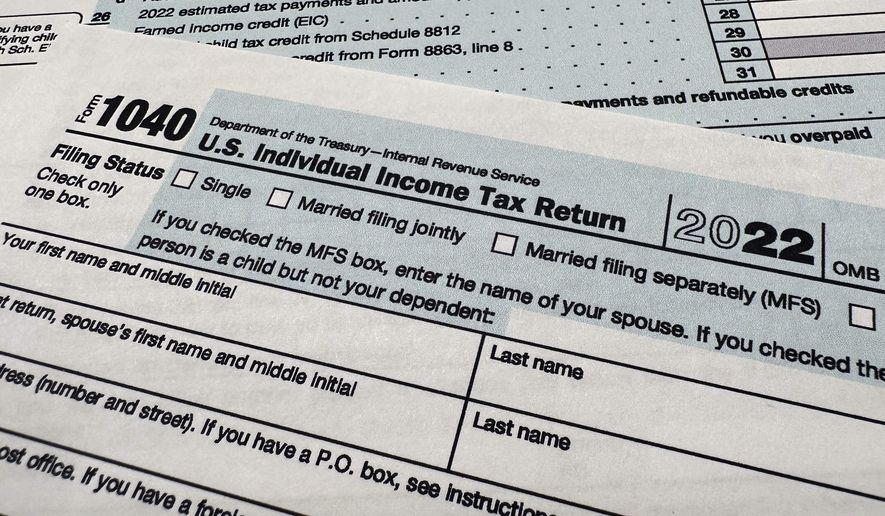The IRS is pushing ahead with plans for its own version of a free direct-file option, announcing on Tuesday it will run a 13-state pilot program for next year that will allow a limited number of taxpayers to fill out and submit their tax returns online without having to use a paid service.
The pilot is still in the early stages and won’t have full functionality for all the sorts of deductions and credits taxpayers may wish to claim, but those with “relatively simple” returns should be able to use it, the IRS said.
Using the IRS platform will be optional.
It will be available to taxpayers in Arizona, California, Massachusetts and New York, which have integrated their state systems with the IRS, and in Alaska, Florida, New Hampshire, Nevada, South Dakota, Tennessee, Texas, Washington and Wyoming, which don’t have a state income tax. Washington state will also have limited availability.
“This is a critical step forward for this innovative effort that will test the feasibility of providing taxpayers a new option to file their returns for free directly with the IRS,” said Danny Werfel, the IRS commissioner.
Next year’s pilot will cover tax returns with basic W-2 earnings, Social Security income and relatively low-interest income. It should also allow claims of the Earned Income Tax Credit, child tax credit and student loan interest deductions.
More than 90% of taxpayers file their returns electronically and about half of taxpayers use a paid preparer. Having an official government-run option has been a goal of some lawmakers, particularly Democrats, for years.
In last year’s budget-climate law they inserted language to push the direct-file option.
The IRS released a feasibility study earlier this year arguing there was significant taxpayer interest in the idea.
But the agency’s inspector general said the IRS bungled its research and wrote its taxpayer survey in a way that may overstate the actual level of interest.
In particular, the survey may have misled taxpayers to believe that the IRS’s option would immediately have the same functionality as paid preparers. The inspector general said independent research has found that 60% of taxpayers would choose to stick with their current options when they are told about the lack of some features in the IRS’s offering.
The inspector general also said the IRS couldn’t justify its estimate that there will be at least 5 million users of the government-run option.
Rep. Jason Smith, chairman of the House Ways and Means Committee that oversees the IRS, said the agency “cooked the books” to get its desired outcome.
“Congress has not authorized a direct e-file program because the IRS has proven to be one of the least trustworthy agencies in Washington, and the American people are rightly opposed to making the already supercharged agency their tax preparer, filer, and auditor,” said Mr. Smith, Missouri Republican.
Republicans say taxpayers should be worried about giving the IRS control over both filing and auditing of taxes.
But Democrats say Americans should have the option if they want.
“There is no good reason to coerce taxpayers to pay the big tax software companies for the convenience of filing taxes online, or to require them to disclose confidential tax information to companies who have been turning it over to big tech firms,” said Sen. Ron Wyden, Oregon Democrat and chairman of the Senate Finance Committee.
• Stephen Dinan can be reached at sdinan@washingtontimes.com.




Please read our comment policy before commenting.